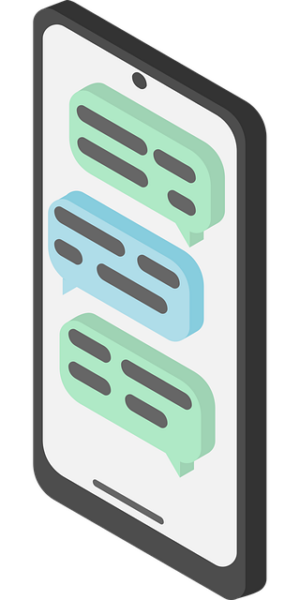Educational institutions in Indiana using autodialers for communication must navigate a complex legal landscape involving the Telephone Consumer Protection Act (TCPA) and state-specific regulations. To avoid fines and maintain ethical standards, schools should consult with specialized autodialer lawyers or attorneys who can guide them on obtaining clear consent, implementing opt-out mechanisms, customizing scripts, training staff, and regularly reviewing call data. By following these best practices, institutions can leverage autodialer technology to streamline administrative tasks, improve student engagement, and foster stronger home-school connections while ensuring legal compliance. Reputable autodialer law firms in Indiana offer tailored solutions and mitigate legal risks associated with autodialer implementation.
“Unleashing the Power of Autodialers in Indiana’s Education Sector: A Comprehensive Guide. Discover how educational institutions can effectively utilize autodialer technology to enhance communication with parents and students. From a legal perspective, this article explores the guidelines and regulations, ensuring compliance for Indiana schools. We delve into best practices, real-world case studies, and provide insights from top autodialer lawyers in Indiana to help educators make informed decisions, leveraging this game-changing tool responsibly.”
Understanding Autodialers: A Legal Perspective for Indiana Schools

In Indiana, schools and educational institutions must navigate a legal landscape when employing autodialers for communication purposes. These automated phone dialing systems, while efficient for bulk messaging, are subject to various laws and regulations to protect individuals’ privacy rights. Specifically, the Telephone Consumer Protection Act (TCPA) sets guidelines on how businesses can contact consumers via telephone, including restrictions on autodialers. Schools using autodialers should ensure they comply with these federal regulations, which prohibit certain types of automated calls without prior consent.
Indiana’s education sector must also consider state-level laws that may supplement or differ from the TCPA. Engaging the services of an autodialer lawyer in Indiana or consulting with an attorney specializing in communication law is advisable. Such legal experts can help educational entities understand their rights and obligations, ensuring they use autodialers ethically and legally, thereby avoiding potential fines and fostering trust among parents and students.
Best Practices for Utilizing Autodialer Technology in Educational Settings

When integrating autodialer technology into Indiana’s education sector, adhering to best practices is essential to ensure effective communication and compliance with legal standards. Educational institutions should prioritize clear consent and opt-out mechanisms to respect student and parent privacy. This includes obtaining explicit permission for automated calls and providing a straightforward way for individuals to discontinue receiving them. Customizing autodialer scripts tailored to the educational context can enhance engagement, ensuring messages are relevant and respectful of recipients’ time.
Additionally, training staff on the responsible use of autodialers is vital. Educators should be equipped with knowledge about state laws governing automated communication, such as those provided by an autodialer lawyer Indiana or a reputable law firm specializing in this area. Regular reviews of call data can help identify potential issues, ensure compliance, and optimize communication strategies. By following these best practices, educational settings in Indiana can leverage autodialer technology to improve outreach efforts while maintaining ethical and legal standards.
Navigating Legalities: Compliance and Regulations for Autodialer Use in Indiana's Education Sector

In Indiana, navigating the legalities surrounding autodialer use in education requires careful consideration and expert guidance. Schools and educational institutions must adhere to strict regulations when employing automated dialing systems for communication purposes. These laws are designed to protect students’ privacy and ensure fair practices in data collection and usage. An experienced autodialer lawyer or attorney in Indiana can help educators understand and comply with these rules, which include obtaining proper consent, ensuring data security, and providing transparent communication about the use of autodialers.
When it comes to implementing autodial technology, seeking advice from a reputable autodialer law firm in Indiana is wise. These professionals can offer tailored solutions, helping educational bodies avoid potential legal pitfalls. They guide institutions on permissible uses, such as sending important academic updates or reminders, while adhering to the Indiana laws and regulations. With their expertise, educators can maximize the benefits of autodialers without compromising compliance.
Case Studies: Successful Implementation of Autodialers in Indiana's Educational Institutions

In recent years, numerous educational institutions in Indiana have successfully implemented autodialers to enhance their communication strategies. These case studies highlight the transformative power of technology in streamlining administrative tasks and improving student engagement. For instance, a small rural school district utilized an autodialer system to automate parent-teacher conference reminders, resulting in significantly higher attendance rates and more involved parents. The initiative not only reduced administrative burdens on staff but also fostered stronger home-school connections.
Another notable example involves a large urban university that adopted autodialers for mass communication during emergencies and important announcements. This implementation proved invaluable during weather events, allowing the university to quickly reach all students and faculty via text messages, ensuring everyone’s safety and providing timely updates. The success of these case studies underscores the potential of autodialer technology in Indiana’s education sector, as evidenced by the positive outcomes achieved by forward-thinking institutions.






